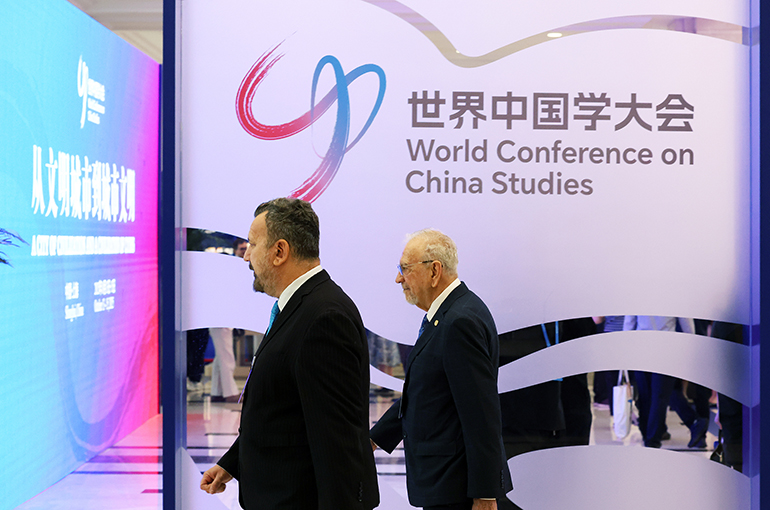Select Language:
The international community needs to shift its focus from solely analyzing China’s history to engaging directly and deeply with its current developments to truly grasp the country’s essence, according to several global experts.
China Studies should expand its scope by emphasizing contemporary China’s progress and enhancing research on Chinese-style modernization, stated Gao Xiang, president of the Chinese Academy of Social Sciences, during the second World Conference on China Studies held in Shanghai. The conference, themed “Historical and Contemporary China: A Global Perspective,” runs for three days and seeks to foster broader understanding and cooperation in Chinese civilization studies while encouraging cultural exchanges around the world. More than 500 experts from various countries are participating this year.
Gao highlighted that China’s path offers a “new option” for developing nations and can shed light on the fundamental question of humanity’s future. Researchers are urged to go beyond passive observation and ground their work within the living realities of modern China. Lin Shangli, president of Renmin University of China, emphasized that any narrative detached from the Chinese context risks becoming an outsider’s view of the country. True understanding requires integrating history, society, and the unique aspects of socialism with Chinese characteristics.
As most of the world’s population lives in the Global South, and countries such as Chile, Brazil, Nigeria, and Saudi Arabia deepen their partnerships with China through initiatives like the Belt and Road, Western influence in China Studies is diminishing, according to Martin Jacques, a senior visiting fellow at the London School of Economics’ Asia research center and a visiting professor at Fudan University. Jacques pointed out that China “is not and will never be Western,” and therefore, remains an ongoing challenge to Western standards, often provoking negative perceptions.
Attendees held diverse views on how best to engage with China today, reflecting a complex international landscape. Romano Prodi, former Italian Prime Minister and former president of the European Commission, stressed that the relationship between China and Europe is at a pivotal point where competition should be managed rather than eliminated. Strategic cooperation remains essential, and efforts to decouple would run counter to mutual interests.
Thomas Gold, a sociology professor at the University of California, shared insights from his visit to a rural Shenzhen district in 1980, where there were no skyscrapers, subways, or airports at the time, expressing initial skepticism about China’s prospects. He noted how much has changed and praised Pudong’s transformation into one of the world’s most modern areas. Gold observed that China’s reforms, once modeled after other economies, now serve as a source of innovation that attracting global attention. Countries send experts to learn from China’s experience, demonstrating its growing influence.
The overarching message of the conference is that the study of China is evolving. Scholars increasingly focus on its current realities to anticipate its future trajectory and its expanding role in shaping the 21st century.
The event is organized by the State Council Information Office and the Shanghai government, with support from China’s Ministry of Culture and Tourism, the Chinese Academy of Social Sciences, Renmin University of China, Fudan University, Beijing Foreign Studies University, and Beijing Language and Culture University.






